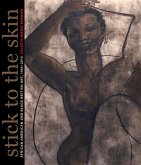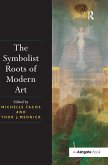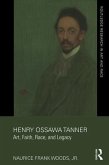A juicy and revelatory history of the Romantic poets that restores them to their fullest context by examining the impact of the transatlantic slave system on their lives and work, by a brilliant young, Whiting award--winning Black scholar For centuries, the Romantics have been examined without any attention given to one of the most significant political issues of their time: the transatlantic slave trade. In The Trembling Hand, award-winning Shelley scholar Mathelinda Nabugodi re-engages this context, and the result is like seeing restored world-renowned frescoes for the first time--layers of obfuscation cleared away. Drawing on a series of objects--Samuel Taylor Coleridge's library record at Cambridge, William Wordsworth's tea cup, a bracelet made of Mary Shelley's hair, Lord Byron's boots--Nabugodi takes us on a dazzling journey back in time, one full of unexpected discoveries that bring to life their poetry and how it has lasted. Here is a journey into the heart of empire, and into the heart of the empire's archives, led by a brilliant, skeptical investigator. Nabugodi reminds us that John Keats, Mary Shelley, William Wordsworth, S. T. Coleridge, P.B. Shelley, and Byron grew up in a world funded and framed by the transatlantic slave trade. It structured their social lives; built the buildings where they first met, buildings Nabugodi revisits; underwrote their scholarships; and even sometimes, in the form of young African servant boys, provided the trembling hand that held the missives of love they passed to their lovers. The Trembling Hand's breakthroughs could last generations, altering the way Romantic poetry is read going forward. In one of many illuminating moments, Nabugodi makes a strong case for the fact that "Rime of the Ancient Mariner" was inspired by the specter of slave ships returning to port, sailors emaciated, sails in tatters. In another, her reading of Frankenstein places it in conversation with another Gothic fable of the time, one written by a plantation owner from Jamaica. The Trembling Hand builds this portrait intimately, luxuriously, allowing the reader into Nabugodi's own trips to various archives, describing her journey in the footsteps of the poets, following the trail of the relics they left behind, and how she feels holding them as a woman whose ancestry is largely absent from their ledgers. Part literary sleuth, part philosopher of the archive, she has given us a tremendous, new kind of book: a first-rate linked biography, but also a groundbreaking work on the politics and history of archives, who built them, and how entwined they are with an industry that was the very antithesis of freedom.
Hinweis: Dieser Artikel kann nur an eine deutsche Lieferadresse ausgeliefert werden.
Hinweis: Dieser Artikel kann nur an eine deutsche Lieferadresse ausgeliefert werden.








